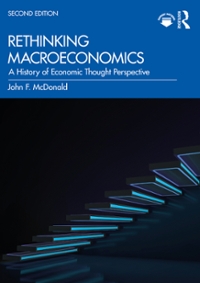Answered step by step
Verified Expert Solution
Question
1 Approved Answer
There are two time periods, 1 and 2, and two agents, A and B. Agent A is endowed with four potatoes in period 1 and
There are two time periods, 1 and 2, and two agents, A and B. Agent A is endowed with four potatoes in period 1 and zero potatoes in period 2, and cannot store potatoes. Agent B is endowed with zero potatoes in both periods, but owns a storage shed that can hold up to 100 potatoes. Thus, agent B can convert up to 100 period-1 potatoes into period-2 potatoes. The utility function of agent i = A;B is ui(xi 1; xi 2) = ln xi 1 ln xi 2; where xi t denotes i's potato consumption in period t = 1; 2. Agents trade potatoes in a forward market. Let p be the relative price of period-1 potatoes and suppose both agents act as price takers in this market. 5 points (a) Write out agent A's utility maximization problem and solve for his demand functions. 12 points (b) Now consider agent B. This agent must decide how many period-1 pota- toes to buy and how many of these potatoes to consume. Period-1 potatoes not consumed are stored and become period-2 potatoes. Therefore, if the
Step by Step Solution
There are 3 Steps involved in it
Step: 1

Get Instant Access to Expert-Tailored Solutions
See step-by-step solutions with expert insights and AI powered tools for academic success
Step: 2

Step: 3

Ace Your Homework with AI
Get the answers you need in no time with our AI-driven, step-by-step assistance
Get Started


